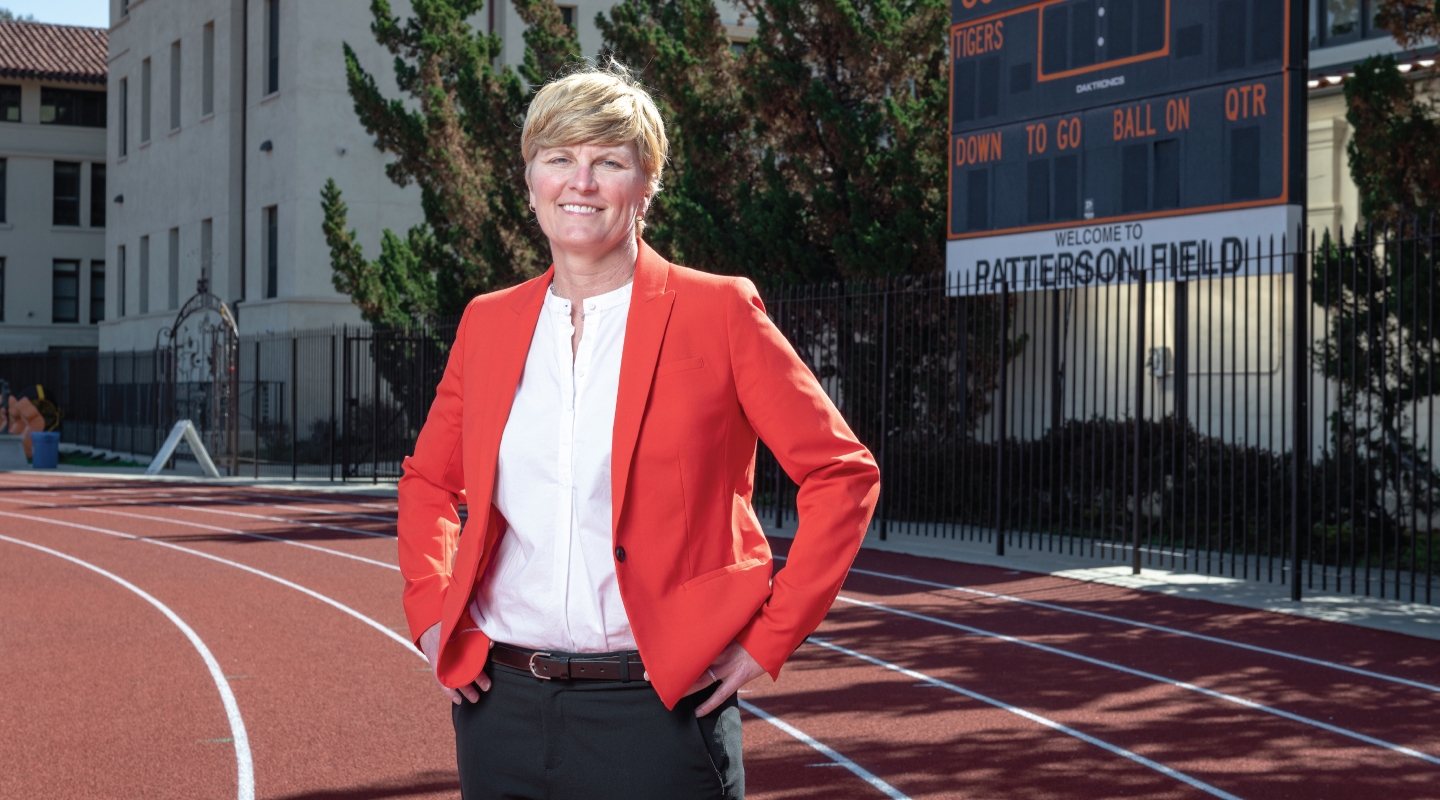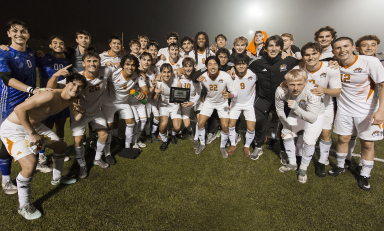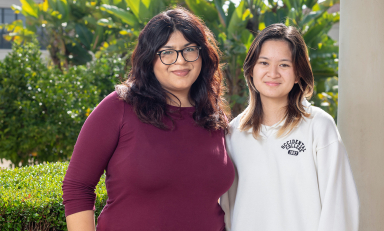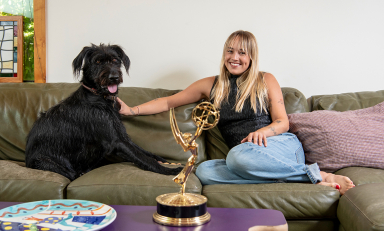As her one-year anniversary approaches this month, Ness reflects on the state of Oxy athletics
Shanda Ness was 23 years old and fresh out of grad school when Dakota Wesleyan University athletic director Doug Martin offered her the opportunity to start a softball program at the NAIA-affiliated school. “I was the same age as some of my players,” says Ness, who grew up shooting hoops on a farm in small-town South Dakota. “But that’s what sports can do for people. It can give them opportunities.”
A quarter-century later—following a long and successful coaching career at Cornell College in Iowa and Gustavus Adolphus College in Minnesota, and two years as athletic director at Thomas College in Maine—Ness migrated west to Occidental as the College’s new athletic director. She arrives at an opportune moment for Oxy sports, with a new home (the Payton Jordan Athletic Offices), new aquatics and tennis centers, and a palpable sense that the Tigers’ fortunes are on the upswing. As her one-year anniversary approaches in March, she reflects on the state of Oxy athletics.
How did you find the spirit of the program when you arrived at Occidental?
It was clear to me that the coaches and staff were hungry to move forward, and I have felt very supported in the leadership that I’ve offered and the ideas I’ve brought to Oxy. It is very important to me to have our entire athletic department operate as a team.
Do you miss coaching at all?
Yes. I loved coaching. I’m the same person as I was when I coached, and now I lead coaches versus leading student-athletes. Although my days look somewhat different, they are much the same in that way. I have always known that being an athletic director was the next step in my career because of my desire to lead, mentor, and have an impact on the lives of student-athletes and the broader community.
Do you meet with your coaches as a group?
We have meetings every other week, and I think that coming together collectively is very important. One of the things we did really early on was to engage with each other to establish core values. Our coaches don’t just coach their team, they all have other roles within the department. We rely on each other to be successful and to propel each other forward. When one program does well, it helps us all, and I think we have that mentality. I believe we have created an environment within athletics filled with positive and inviting energy.
Do you have an adequate budget to do what you need to do?
Overall, my budget is adequate but there are certainly areas that I would like to enhance or develop. There are a few facility enhancements that would help—our stadium turf and lights need attention. And then there’s personnel—support for the coaches, full-time assistant positions, things like that. And we could always use more resources for team travel that enhances the student-athlete experience.
What constitutes a successful student-athlete experience?
I like to say that winning is important, but it’s not the only thing that’s important. Paying attention to mind, body, and spirit in the overall development of a student-athlete—and not focusing on only one of those—needs to be part of our everyday process.
Is Occidental at a good place moving forward in providing opportunities for women in sports?
Yes; however, there’s always work to be done in that area. It is something that we are mindful of and intentional about. While I think we have great opportunities for our female student-athletes, we are striving to make Oxy even better for them.
What are your thoughts about the long-term prospects for football at Oxy?
Our football staff has worked very hard and diligently to move the program forward. It is not a quick process; it requires some patience. But I think they have taken steps in making sure that, first and foremost, we have a viable team. With strong recruiting and retention efforts, we can continue making progress.
I gather you attended some football games this season.
I attended all the home games. Our players went out there and left it all on the field. They competed really hard and I took a lot of pride in that. That speaks to their character and who they are as people.
How many Oxy teams have you seen in competition?
I think I’ve seen them all now. It’s a big deal to me to attend our competitions. That’s what our student-athletes work hard for every day—putting in the time and the practice. So, I make it a priority to get out and support them.
What’s the most surprising thing about your experience here so far?
I’ve been in college athletics for a long time, so it’s pretty hard to surprise me. But I feel very fortunate to have become invested, intertwined, and connected to Occidental so quickly. And I think that’s a result of the people being so open and welcoming to me. It’s not hard for me to say that I’m all in for Oxy.




